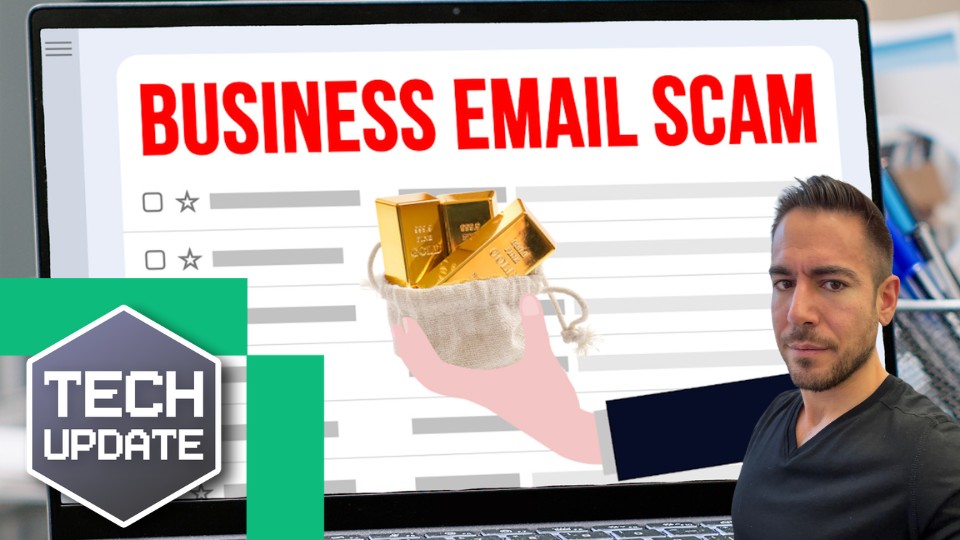Email is essential for business, but it’s also a major security risk. Without proper safeguards, you’re inviting hackers in. Business Email Compromise (BEC) is on the rise, and it’s costing companies billions. If you think your business is immune, think again. Every organization is a target.
What is a BEC Attack?
BEC attacks involve cybercriminals impersonating executives or staff to steal sensitive information or money. According to the stats, nearly 90% of BEC attacks rely on impersonation. A seemingly urgent request can pressure employees into compliance, putting your company at risk.
Why BEC Attacks are Growing
Research shows 58% of malicious emails are BEC-related. The numbers speak for themselves:
- 1.8 billion emails analyzed
- 208 million malicious emails detected
- 58% were BEC attacks
Smaller businesses are especially vulnerable due to fewer security resources.
Who’s at Risk?
BEC targets lower-level employees, who are less suspicious and more likely to follow urgent requests. Hackers exploit trust, authority, and urgency—traits that make email an easy target.
Beyond BEC: Other Threats
BEC isn’t the only threat. Your inbox also faces commercial spam, irrelevant ads and phishing – email a breeding ground for scammers to slip something nefarious in when you’re least expecting it.
These threats are now more dangerous than traditional malware, and the only defense is to evolve beyond traditional security methods like antivirus.
How to Secure Your Business
Protecting your business from BEC isn’t complicated. Here’s how:
1. Train Employees to Spot Scams
Regular training is essential. Red flags include:
- Urgent requests for money or data.
- Slightly altered email addresses.
- Unusual grammar or spelling mistakes.
If it feels off, double-check.
2. Verify Requests Through Another Channel
Always confirm sensitive requests via phone, text, or in person—don’t rely solely on email.
3. Implement Multi-Factor Authentication (MFA)
MFA adds a second layer of security. Even if passwords are compromised, hackers won’t get far.
4. Use Advanced Email Security Protocols
Set up filters to block malicious emails before they hit your inbox. Implement protocols like:
- DMARC
- SPF
- DKIM
These prevent spoofing and ensure email authenticity.
5. Regularly Audit Security Practices
Review your security measures regularly and address any vulnerabilities. Bring in experts if needed.
Why BEC is So Effective
BEC attacks exploit human psychology:
- Authority Bias: People follow directives from supposed “higher-ups.”
- Urgency Bias: Urgent requests pressure fast action.
- Trust Exploitation: Hackers pose as trusted colleagues.
Training your team to recognize these tactics makes it harder for scammers to succeed.
BEC costs businesses billions annually. The consequences extend beyond financial loss, including:
- Damaged reputation.
- Lower employee morale.
- Disrupted operations.
For smaller businesses, one successful attack is all it takes.
Email Security: A Team Effort
Protecting against BEC is everyone’s responsibility. From interns to executives, every employee must stay vigilant. Build a security-first culture, reward those who spot scams, and incentivize training.
Need help? We’re here to secure your email and prevent costly mistakes. Invest in protection now—stay smart, stay secure.
Responsive. Proactive. Leap Cloud Solutions.
Frequently Asked Questions (FAQs)
A BEC attack is a cyber scam where criminals impersonate high-level employees to trick others into sending sensitive information or money.
Look for urgent requests, unusual email addresses, or deviations from standard procedures. Always verify suspicious emails through another communication channel.
BEC attacks exploit human psychology, such as authority and urgency. They are easier to execute than technical hacks and are highly profitable for scammers.
No. Training employees and implementing basic security protocols like MFA can significantly reduce risks without large costs.
Immediately verify the email’s authenticity and report it to your IT department or cybersecurity team.
Yes, small businesses are often targeted due to their potentially weaker security measures and lack of awareness.





